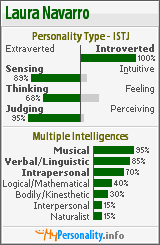I finished it today, with a fair bit of rereading and discussing as I went along. I admit that reading a book like this takes me longer for two reasons. The good reason is that I do spend time writing out, thinking about, and discussing the concepts and how they apply to me. The not so good reason is that I don’t make a lot of time for that kind of thing, it’s faster and easier to pick up a novel some days.
In The Next Story: Life and Faith After the Digital Explosion by Tim Challies seeks to show how technology affects us, changes the way we live, has costs as well as benefits. He also challenges us to think deeper, want more from life than the shallow thinking that comes with so much of the technological gadgets we surround ourselves with. This deep thinking includes the perspective of a Christian who believes in an almighty God who calls us to be holy.
The first section points out some truths about technology – why it is necessary and also why it is often destructive. He recounts a history of technology up to the digital explosion, showing how each advance in technology brought great benefits but also many changes, and some costs.
The second section discusses 6 ways our lives have changed due to the digital technology available to us. He discusses how our habits of communication have changed. And how most of our communication is mediated rather than face to face. Last month I read Pride and Prejudice, which is a book very much centered around gatherings, long personal letters among friends and family, and travel for in-person visits. Tim Challies points out much of this has been sacrificed and is now considered inconvenient in the age of email and blogs. He picks on using email instead of phone calls, as many consider phone calls an interruption. I choked on this a little bit, as I remember as a child thinking that a phone call was an interruption and how we should strive to not be at the mercy of the ringing phone. But his point was that we would rather send a quick email than spend time really talking to someone by phone (or even video conferencing).
He also talks about being distracted and how the demands of technology to switch tasks and check so many different things are robbing us of our ability to focus and spend longer amounts of time working and thinking. He follows this up with a talk about how we want more and more information, but spend less time really seeking true knowledge or wisdom.
The last two chapters cover the way we are losing a concrete idea of truth and authority, leaning more toward the wiki version of truth by consensus rather than truth by facts as studied and explained by experts. And he covers the weird way we want to be visible and sacrifice privacy for much of that. Even if we aren’t worried about being visible, the convenience factor very often drives us to give up our privacy and allow a data trail to be collected, collated, and analyzed.
Many times through the book I would have the thought that I am nothing like what he is describing. I don’t think this was pride thinking that I am not that bad. Just shock that so many other people must be this addicted to their technology. I can still find plenty to convict me of my own habits with technology, desire for more and more information, and ability to be distracted. I also agree with his premise that if we keep watch over our lives with our theology in mind, knowing Jesus as our living Savior and seeking to please Him and live our lives to God’s glory, we will need to and be able to evaluate our habits, including those using technology, with discernment.
A worthy and sobering read. Much more descriptive than prescriptive, as he says was his intent. Food for thought. Will we take the time to think it through and take action?



